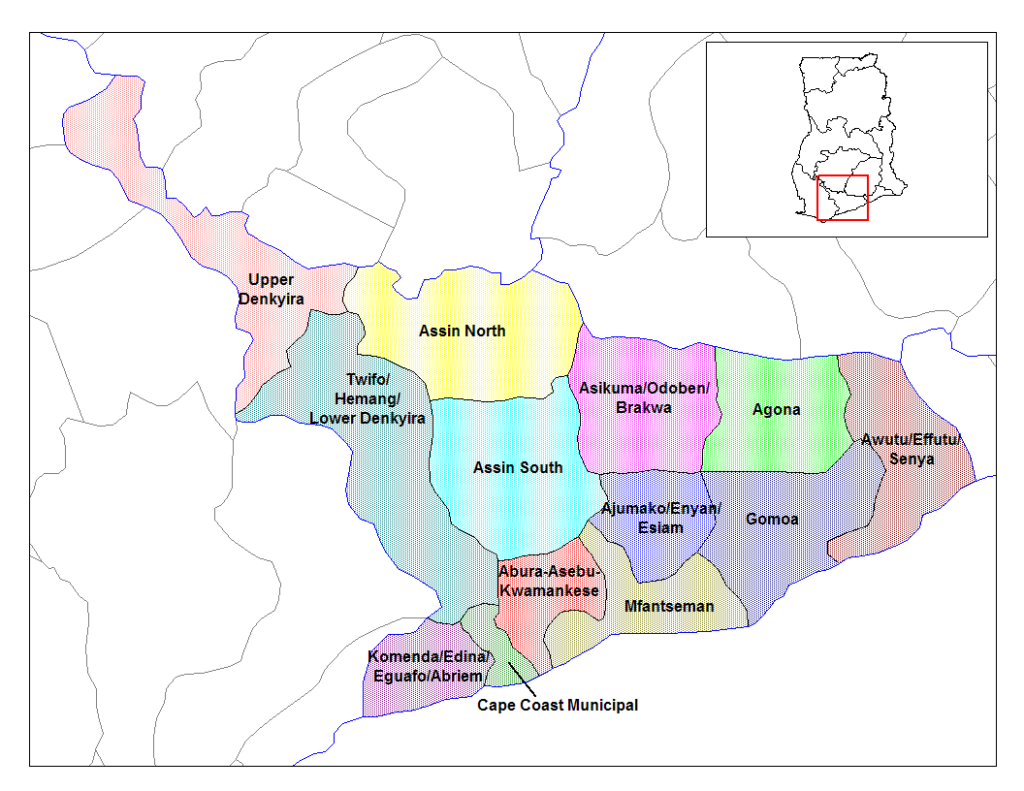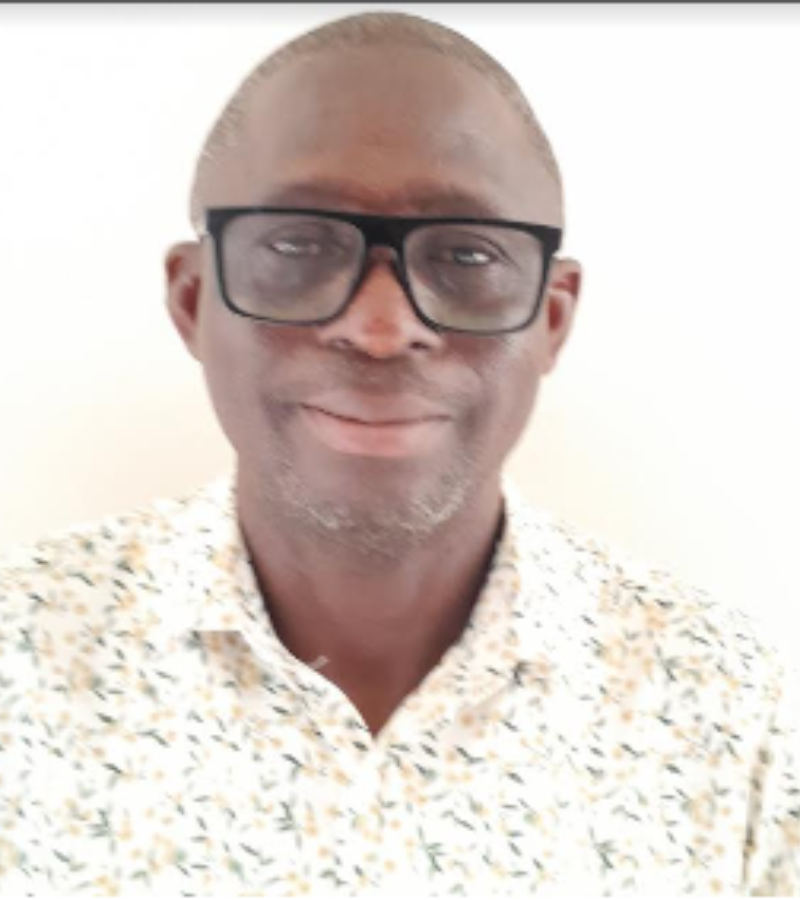AJUMAKO-ANYAN-ESSIAM DISTRICT PROFILE
Overview
Ajumako-Enyan-Essiam District is one of the 22 districts in the Central Region of Ghana. It covers an estimated land area of 541.3 square kilometers, representing about 5.5% of the region’s total area of 9,828 square kilometers. The capital town is Ajumako, which serves as the seat of the local Government Administration.
Location and Size
- North: Bounded by Asikuma Odoben Brakwa District
- Northwest: Bounded by Assin South District
- West: Bounded by Mfantsiman
- East: Bounded by Agona West and Gomoa East Districts
- South: Bounded by Agona East and parts of Mfantsiman

Population
The district has an estimated population of 126,444 (as of 2024), projected from the 2021 population and housing census data with a growth rate of 2.4%. The population is predominantly Akan, with minority groups including Gas, Ewes, Krobos, and other migrants from northern Ghana. There are five Paramountcies in the district: Ajumako, Breman Essiam, Enyan Abaasa, Enyan Denkyira, and Enyan Maim, encompassing 143 clearly defined communities.
Political Sector
The District Assembly is the primary body responsible for the overall development of the district, exercising power and administrative authority. The District Chief Executive (DCE) serves as the Political and Administrative head, supported by the District Planning and Coordinating Unit (DPCU), headed by the District Coordinating Director. The DPCU prepares the District Medium Term Strategic Development Plan. The Assembly consists of 47 electoral areas with 68 members, including Government appointees, the Member of Parliament, and the DCE. The Presiding Member acts as the leader of the assembly. There are nine Town Councils under the District Assembly, which promote community involvement in social organization.
Religion
The majority of the population are Christians, with denominations including the Roman Catholic Church, Methodist Church, Presbyterian Church, Anglican Church, Church of Pentecost, and various Charismatic Churches. Other religious groups include Muslims and a small proportion of traditional religious practitioners. Prayer camps are also prevalent in the district.
Occupation
Most citizens engage in farming for their livelihoods, with major market days on Mondays in Ajumako and Thursdays in Essiam. The main mode of transportation is by road, with trunk roads linking the district to the rest of the country. Information sources for the population include newspapers and radio stations such as Breezy FM, Impact FM, Radio Central, and Kingdom FM. Community Information Centers provide general information, including health updates.
Health
Major Concerns
- Low family planning acceptor rate
- High cases of anemia among pregnant women at week 36
- Low detection rates for non-communicable diseases
- Increase in typhoid fever cases since 2018
- Low TB case notification
- High incidence of malaria
- Late reimbursement from the National Health Insurance Scheme (NHIS)
- Low community support for health service delivery/activities
- Inadequate motorbikes for community-level services
- Inadequate basic medical equipment and supplies
The District Health Directorate is responsible for planning and delivering healthcare in the district. The district combines curative and preventive methods to provide quality primary healthcare at the community, sub-district, and district levels. The district is divided into five health sub-districts: Abaasa, Bisease, Ajumako, Sonkwa, and Nwantanum. The main hospital is located in Ajumako, with additional health services provided by polyclinics, clinics, CHPS Compounds, and private maternity homes.



